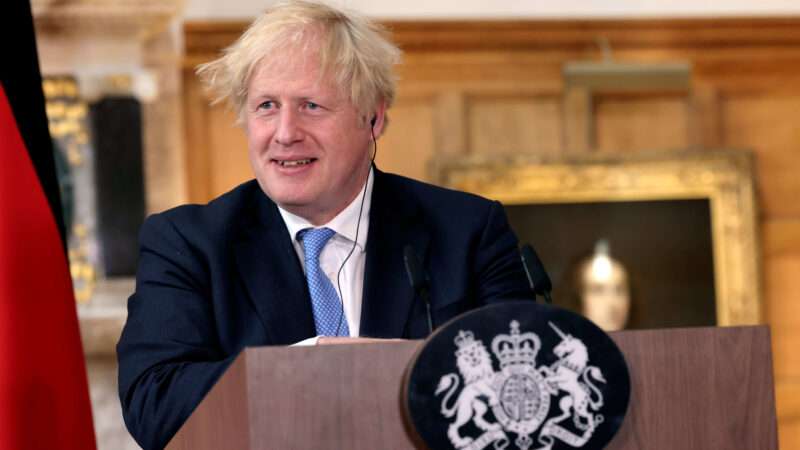
Last week, British authorities announced they would ban internet and television advertisements for so-called “junk food” before 9 p.m., beginning in 2023. The ban targets many foods that are high in salt, fat, or sugar, including chocolate, ice cream, soda, breakfast cereals, and pizza.
The government of Prime Minister Boris Johnson says the plan is intended to combat childhood obesity.
“To meet our ambition to halve childhood obesity by 2030, it is imperative we reduce children’s exposure to products high in fat, salt[,] and sugar (HFSS) advertising on TV and online,” the government said in a statement last week.
This is a cynical move that will have no impact on obesity—not by 2030, not by 2040, and not even by 2525.
To state the obvious, no child has ever become obese after watching advertisements for food—just as no adult has ever later crashed their car because they saw Jake from State Farm on their television. If it were advertising that provided children (or adults) with salt, fat, sugar, and various other vitamins, minerals, nutrients, and calories, then marketing would replace eating as human sustenance. That hasn’t happened.
What actually happens—apologies for stating what may seem obvious, but clearly is not obvious to everyone—is that parents and/or guardians 1) buy food that kids eat, and/or 2) give kids money to buy food. Kids don’t choose what foods they eat. Adults choose what kids eat by buying that food. That’s it. That’s the tweet.
Now, do kids ask, beg, cajole, and hound the adults in their lives to buy so-called junk food? Absolutely! And do some adults give in to all that whining and cajoling? Of course! But does that mean the government should step in to play the role of that child’s parent or guardian? Hell no! It’s up to these parents to parent. To say no. To explain why certain foods are special treats and others are ones kids can and should eat every day. To create healthy habits that kids can build on as they become teens and adults.
Even if marketing bans accomplished their goals—they haven’t, don’t, and won’t—this British one would still fail. That’s because, as Politico reports, the Great British Advertising Ban contains a number of loopholes. For one, it only applies to paid advertisements—and not, for example, a food company’s social media account(s). Furthermore, the ban exempts small businesses, ads on radio and podcasts, and ads for so-called junk foods that don’t visually show any of said junk food. So-called “healthy foods” that are high in fat, salt, and/or sugar—including honey, olive oil, and avocados—are also exempt from the ban, The Hill reports.
I’m hardly the only critic of Britain’s food-marketing ban. Noel Yaxley, writing at The Article, says the ad ban will hurt food companies and news outlets alike at a time when they’re still trying to emerge from the economic destruction wrought by the pandemic and related restrictions.
A leading British digital marketing spokesperson agrees.
“I could write a whole piece picking apart the lack of evidence behind this tokenistic ad ban and how it represents a completely missed opportunity to address the root causes of childhood obesity,” Jon Mew wrote in a piece for Adweek. “Or the fact that the ban is built on an assumption that isn’t correct—that a linear relationship can be drawn between seconds of online HFSS ad exposure and calories consumed.”
As I wrote in a column early last year on the implications of Brexit, Britain’s exit from the European Union (E.U.) would put long standing British complaints about the European nanny state to a real test. With Britain no longer subject to E.U. regulations, I wondered whether it would embrace freer markets in food or just choose to craft its own oppressive food rules. Last summer, I was already lamenting the fact that Johnson had embraced nanny state food restrictions after recovering from a severe case of Covid-19, which in Johnson’s case was likely worsened by his obesity. (Johnson subsequently lost weight thanks to “early-morning runs and fewer carbohydrates,” not by restricting food marketing.)
I wondered then if post-Brexit Britain would become “a beacon of free trade and prosperity” or if it would instead “ramp up its nannying ways.” Sadly, I think we have our answer.
from Latest – Reason.com https://ift.tt/3jGLMom
via IFTTT